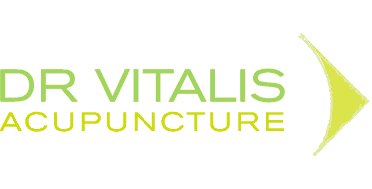Chinese medicine bears hope for women undergoing IVF
Mary Stewart was keen to start a family, but she’d had several ectopic pregnancies and her right-hand Fallopian tube had been removed. Also, only her right ovary was ovulating.
Stewart, 31, a property developer, was prepared to try in-vitro fertilisation, but as a last resort. An article she’d read on acupuncture and infertility made her look on the internet for an alternative practitioner willing to work alongside conventional methods.
That’s how, two years ago, she found Jo George, who runs the Life Medicine Clinic at Crouch End here. George uses acupuncture and Chinese medicine, with an emphasis on gynecological health and conception.
“The first thing Jo did was to try to stimulate my left ovary using electro-acupuncture – tiny currents through the needles. That sounds a bit scary, but all you feel is a buzzing or tingling. After several months, amazingly, my left ovary did ovulate. I was having follicle tracking at a hospital, so they could tell me straight away.”
Stewart, however, decided to try in-vitro fertilisation after all.
“The follicle tracking was so slow and I was becoming so miserable. It was a terrible blow when my first go at in-vitro fertilisation failed. I was resting before the next cycle of treatment when I fell pregnant naturally.”
Sam was born last April.
Stewart had been having weekly acupuncture sessions with George and drinking individually prescribed mixtures of Chinese herbal medicine – which tastes notoriously awful – before she conceived.
Moxa for pregnancy
She continued to visit George for acupuncture throughout her pregnancy. At 36 weeks, her son was in a breech position. “I was desperate to avoid a Caesarean. Jo suggested Moxa. It seemed like a mad treatment. I burst out laughing when she told me what we had to do. I thought, ‘That’ll never work’.”
Moxa is a dried herb that comes in a roll. For 15 minutes each evening, Stewart’s husband, Jeremy, held a smoldering roll of Moxa close to her little toe.
“Sam would be going nuts, wiggling around inside and he did turn, just as I was about to be booked in for a Caesarean.”
Stewart is pregnant with her second child, conceived naturally and without help. Stewart is convinced George’s techniques have enhanced her fertility.
“I was sceptical, but when I saw the follicle tracking results I sat up and took notice. I also didn’t think that the way the Moxa worked was coincidence. Jo also made me feel better in myself, more relaxed, and she was good at reminding me that these things take time.”
George, 35, trained in aromatherapy, massage and reflexology before taking a degree in acupuncture at the University of Westminster and then studying Chinese herbal medicine.
Each hour-long visit begins with a consultation, then the patient lies on a couch while she inserts the fine needles.
George leaves the patient to relax or sleep while she blends their herbs, which might include licorice, mint or Angelica. She uses ready-ground herbs so patients don’t need to boil up bark or roots for hours – they simply take the powders in hot water.
Her training in China led George to believe that Western and Chinese medicine could sit happily together. “Chinese doctors are trained in both.”
Gynecology is one of the strengths of Chinese medicine, George says.
“Not everyone who sees me wants to get pregnant. There may be another problem, such as fibroids, endometriosis, or heavy or painful periods.”
Andrew Moore, a former National Health Service consultant biochemist and now editor of Bandolier, an online magazine that promotes evidence-based thinking about health care, says if acupuncture could significantly help with conception, it would be in widespread use.
